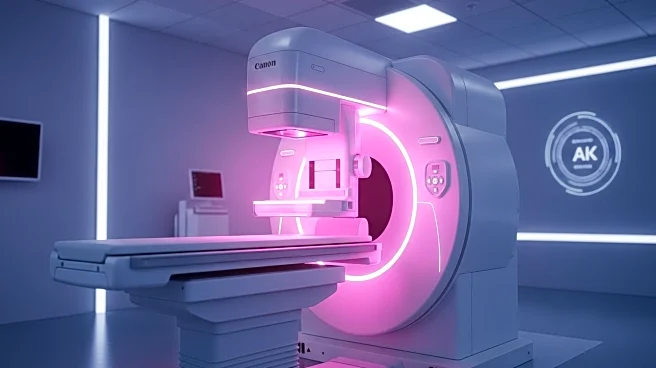What's Happening?
Artificial intelligence (AI) is transforming breast cancer research and care by enabling new methods for early detection, accurate diagnosis, risk prediction, and personalized treatment. Advances in machine learning and deep learning are being applied to imaging, pathology, and therapy planning, offering innovative solutions across the breast cancer continuum. The integration of AI into healthcare systems requires careful consideration of transparency, reproducibility, bias, and equity to ensure effective implementation.
Why It's Important?
AI has the potential to significantly improve breast cancer outcomes by enhancing the precision and efficiency of diagnosis and treatment. By leveraging AI, healthcare providers can offer more personalized care, reduce costs, and improve patient experiences. The technology also promises to streamline clinical workflows, allowing medical professionals to focus on critical decision-making rather than administrative tasks. However, the ethical and regulatory challenges associated with AI must be addressed to ensure equitable access and prevent disparities in care.
What's Next?
The continued development and integration of AI in breast cancer care will require collaboration among computer scientists, clinicians, and ethicists to address methodological and practical challenges. Prospective validation studies and cost-effectiveness analyses will be crucial in demonstrating the real-world impact of AI systems. As AI technology evolves, it will be important to ensure that it is used responsibly and equitably to benefit all patients.









